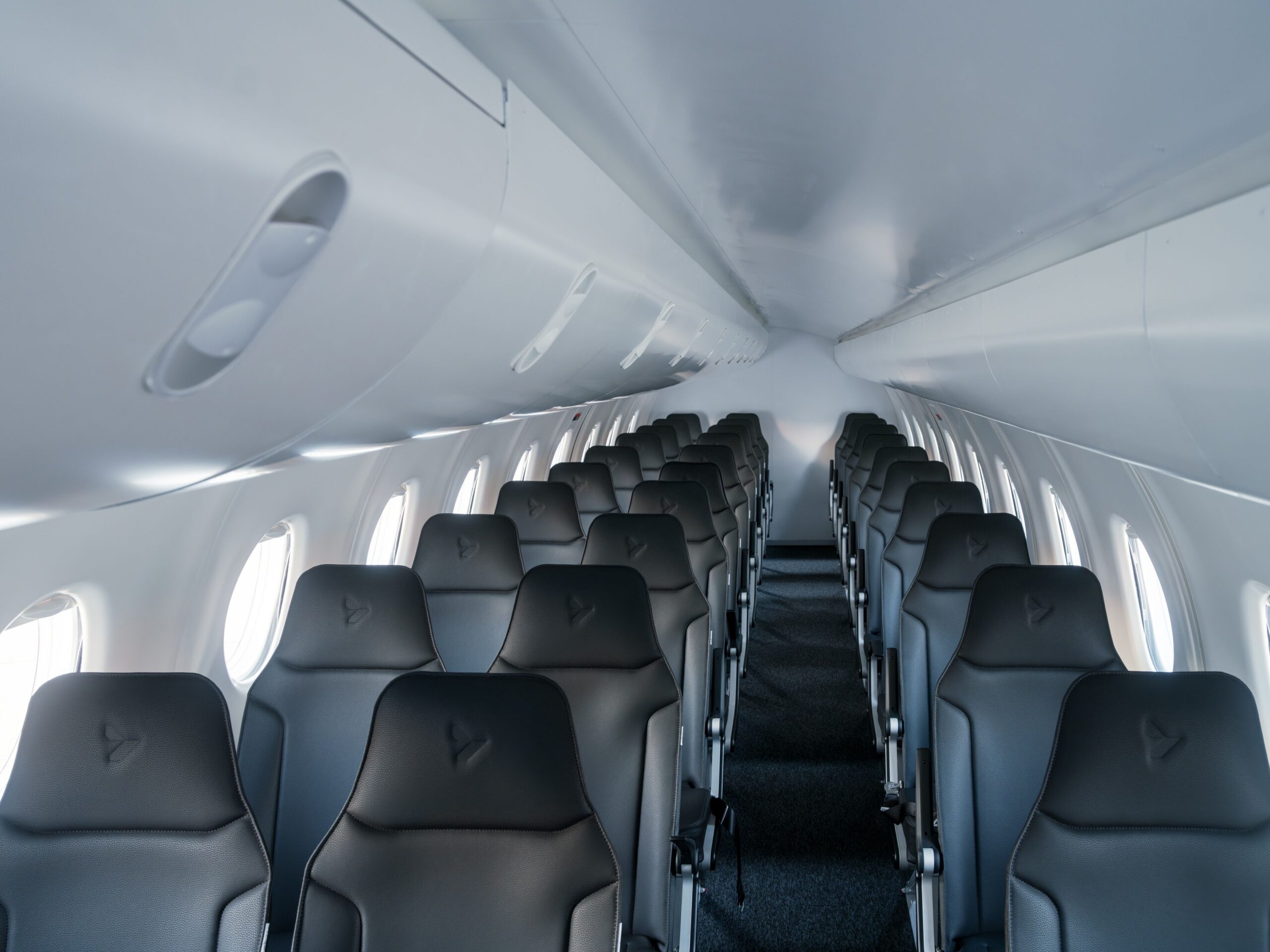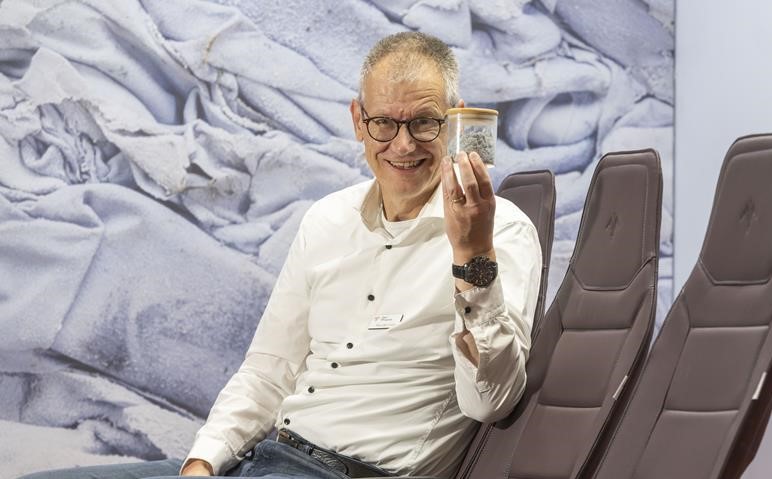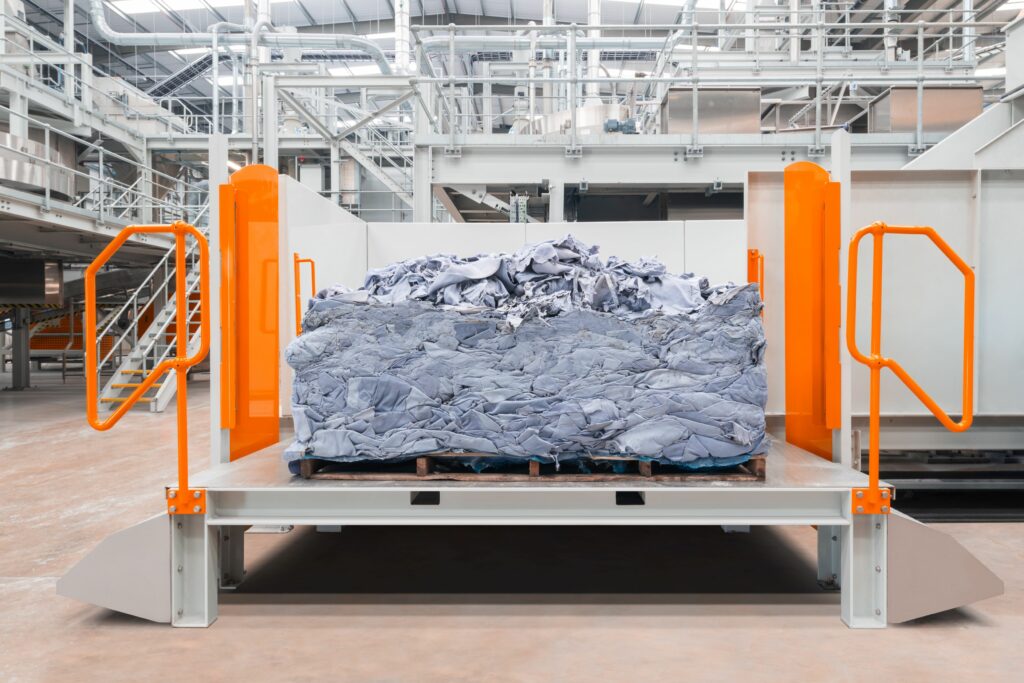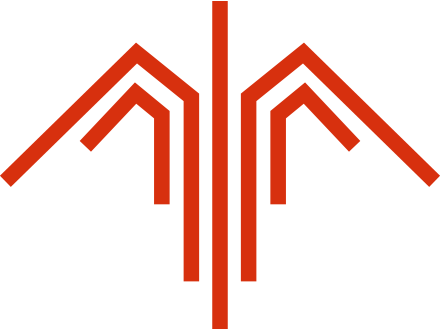
Why Gen Phoenix’s Recycled Leather Is the Aviation Game-Changer the World Desperately Needs: Nico Den Ouden, Chief Innovation Officer & General Manager Seating at Gen Phoenix.

In an exclusive expert commentary with Travel and Tour World, Nico Den Ouden, Chief Innovation Officer & General Manager Seating at Gen Phoenix, unveils why Gen Phoenix’s recycled leather fiber is poised to revolutionize aviation sustainability far beyond what sustainable aviation fuels (SAFs) alone can achieve.
While SAFs are crucial, currently fulfilling just 0.5% of aviation’s fuel needs, scaling them remains plagued by high costs, limited feedstock, infrastructure gaps, and environmental risks like deforestation and water overuse. Gen Phoenix’s recycled leather fiber emerges as an immediate, scalable solution, tackling aviation’s carbon footprint from another angle—aircraft interiors.
Gen Phoenix’s breakthrough material is up to 45% lighter than traditional leather, saving up to $10,000 in fuel costs and slashing 84 tons of CO2 emissions per aircraft annually. For airlines, this means tangible environmental and financial wins. Furthermore, Helios, the company’s latest innovation, transforms end-of-life aircraft seat covers into fully recyclable materials—shrinking the aviation material carbon footprint by an additional 30% and preventing over 3 tons of landfill waste per year for a 180-aircraft fleet.
Unlike other sustainability efforts, Gen Phoenix champions full circularity. Helios closes the loop on aviation waste, ensuring materials are continuously reused without compromising performance or quality. Airlines now have a turnkey system to integrate closed-loop circularity directly into their supply chains.
Critically, Gen Phoenix isn’t just innovating—it’s scaling. With the capability to produce up to 6 million m² of material annually, powered entirely by renewable energy and using 95% recycled water, the company already supplies over 250 airlines, covering 4 million seats globally since 2007.

Innovative materials like Gen Phoenix’s recycled leather fiber complement SAFs by enhancing aircraft efficiency and sustainability simultaneously. Together, they form a two-pronged, aggressive attack on aviation’s emissions crisis.
The future for Gen Phoenix’s recycled leather fiber looks bright. With airlines increasingly demanding lightweight, durable, eco-friendly interiors that align with new carbon reduction mandates, Gen Phoenix is uniquely positioned to dominate a market urgently seeking real, scalable solutions.
As Den Ouden concludes, true sustainability isn’t about one solution—it’s about building an ecosystem. And Gen Phoenix’s fully circular, ultra-lightweight recycled leather fiber may just be the aviation industry’s boldest step toward a genuinely greener future.
How does Gen Phoenix’s recycled leather fiber contribute to reducing aviation emissions compared to sustainable aviation fuels (SAFs)?
Gen Phoenix’s recycled leather fiber contributes to reducing aviation emissions by addressing the weight of aircraft interiors, which directly impacts fuel consumption. Our material is designed to be up to 45% lighter than traditional options made of leather hide, leading to reduced fuel usage and, consequently, lower emissions. Furthermore, Helios, our latest material innovation that transforms end-of-life aircraft seat covers into new, fully recyclable materials, reduces the carbon footprint for our aviation material of 3.83 kg/m2 by a further 30%, according to early life cycle analysis. For a typical airline with 180 aircraft, it could prevent over 3 tons of landfill waste per year.
While SAFs are crucial for reducing emissions from fuel combustion, our recycled leather fiber complements these efforts by enhancing overall efficiency and supporting a holistic approach to sustainability.
With SAFs currently meeting only 0.5% of the aviation industry’s fuel needs, what are the key challenges in scaling up production?
Scaling up SAF production faces several challenges, including high production costs, limited feedstock availability, and the need for substantial infrastructure investment. Additionally, SAFs require significant advancements in technology and regulatory support to achieve wider adoption. Addressing these challenges involves collaborative efforts across the industry to improve production processes, increase investment, and develop policies that encourage SAF use.
In contrast, Gen Phoenix has successfully scaled its operations to become the world’s first recycled leather fiber manufacturer at scale. True sustainability lies in our ability to create impactful solutions, which means meeting the performance, planet, and price requirements of legacy leather brands. As the only next-generation material company capable of producing at the scale demanded by global brands, Gen Phoenix’s state-of-the-art facilities can produce up to 6 million m² of material annually. We’ve successfully scaled in the aviation market as well, now flying on over 250 airlines since inception in 2007 and supplying enough material to cover 4 million seats. Our commitment to sustainability is reflected in our use of 100% renewable electricity and recycling up to 95% of our water. This scale and efficiency make Gen Phoenix a leader in delivering sustainable solutions without compromising on quality or cost.
Can you explain why some waste-based SAFs might not be a viable long-term solution for the aviation sector?
Some waste-based SAFs may not be viable long-term due to limitations in feedstock availability and competition for resources. As the aviation industry seeks to scale SAF production, reliance on waste-based sources might not provide a consistent and sustainable supply. Additionally, the processing of waste-based SAFs can be complex and costly, which could impact their long-term feasibility compared to other renewable sources.
How does the 45% weight reduction of Gen Phoenix’s recycled leather translate into fuel savings for airlines?
Gen Phoenix’s recycled leather fiber achieves a 45% weight reduction, which translates into substantial fuel savings—up to $10,000 per aircraft per year. For instance, a typical A320 using our material could save approximately 24 tons of fuel annually, equivalent to reducing CO2 emissions by 84 tons. While weight reduction plays a critical role in lowering fuel consumption and operational costs, it’s essential to recognize that this is just one aspect of reducing the aviation industry’s carbon footprint. Aircraft interiors alone account for approximately 10% of an airline’s overall carbon emissions.
By adopting a holistic approach to sustainability, similar to the Airbus Vision 2035, and selecting more sustainable interior materials, airlines can further reduce their environmental impact. It’s important to note that the lightest materials aren’t always the most sustainable. Materials must not only lower carbon footprints but also offer durability and high performance. Our recycled leather, which has an 83% lower carbon footprint than traditional leather, is designed to outlast other materials on the market. This approach provides dual benefits: significant carbon savings through both the selection of more sustainable materials and the in-use weight reduction. By choosing materials like Gen Phoenix’s recycled leather, airlines can better align with industry sustainability goals and contribute to a greener future.
What are the main environmental challenges associated with the various SAF production methods, including those funded by the FAA?
SAF production faces several challenges, including the energy-intensive process, feedstock sourcing, and lifecycle emissions. FAA-funded methods must address sustainability and scalability issues. Without sustainable practices, SAF production risks deforestation, biodiversity loss, and competition with food crops. Additionally, biofuel production requires significant water resources, which can strain local supplies and affect water quality. Cost remains a key barrier, as SAF producers need to lower prices to compete with traditional jet fuel and achieve widespread adoption.
How does Gen Phoenix’s fully circular material approach differ from other sustainability efforts in the aviation industry?
Gen Phoenix’s fully circular material approach focuses on complete lifecycle management, from production to end-of-life recycling. Unlike traditional sustainability efforts that may address only certain aspects of environmental impact, our approach ensures that materials are continuously reused and recycled, significantly minimizing waste and reducing the overall environmental footprint. This model supports a truly sustainable approach within the aviation industry, addressing both current and future environmental challenges.
Our latest circular material innovation, Helios, was launched as a proof of concept at the Aircraft Interiors Expo earlier this year, receiving much attention from airlines for its approach to transforming end-of-life seat covers into new, fully recyclable materials.
This closed-loop process directly tackles a critical waste issue in aviation, where seat covers, traditionally made from non-recyclable materials, end up in landfills or are incinerated. Created with 100% recyclable components, Helios is designed to meet the exacting certification requirements of the aviation industry, offering a sustainable solution without compromising on quality or performance.
In what ways can innovative materials like Gen Phoenix’s recycled leather fiber complement or replace SAFs in the pursuit of aviation sustainability?
Innovative materials like Gen Phoenix’s recycled leather fiber complement SAFs by addressing different aspects of aviation sustainability. While SAFs focus on reducing emissions from fuel combustion, our recycled leather fiber enhances overall aircraft efficiency through weight reduction. Together, these solutions provide a multifaceted approach to sustainability, combining fuel alternatives with advancements in material technology to achieve broader environmental benefits.
What are the scalability prospects for Gen Phoenix’s recycled leather fiber in the broader aviation industry?
The scalability prospects for Gen Phoenix’s recycled leather fiber in the broader aviation industry are highly promising, given the material’s significant weight reduction benefits and its alignment with the industry’s growing focus on sustainability. As airlines increasingly seek lightweight and eco-friendly materials to improve fuel efficiency and reduce their carbon footprint, our recycled leather fiber is well-positioned for broader adoption. Continued innovation and strategic partnerships will be crucial in scaling production and integrating our material across various aircraft models and applications.
To facilitate the adoption of Helios in the market, we have developed a fully circular system that allows the brands we work with to realize the full benefits of closed-loop circularity. Helios is more than just a material; it’s a comprehensive circular system designed to integrate seamlessly into airlines’ supply chains, providing a turnkey solution for transforming waste into valuable materials. This approach not only supports sustainability goals but also offers a practical pathway for scaling up the use of recycled leather fiber in the aviation industry.


